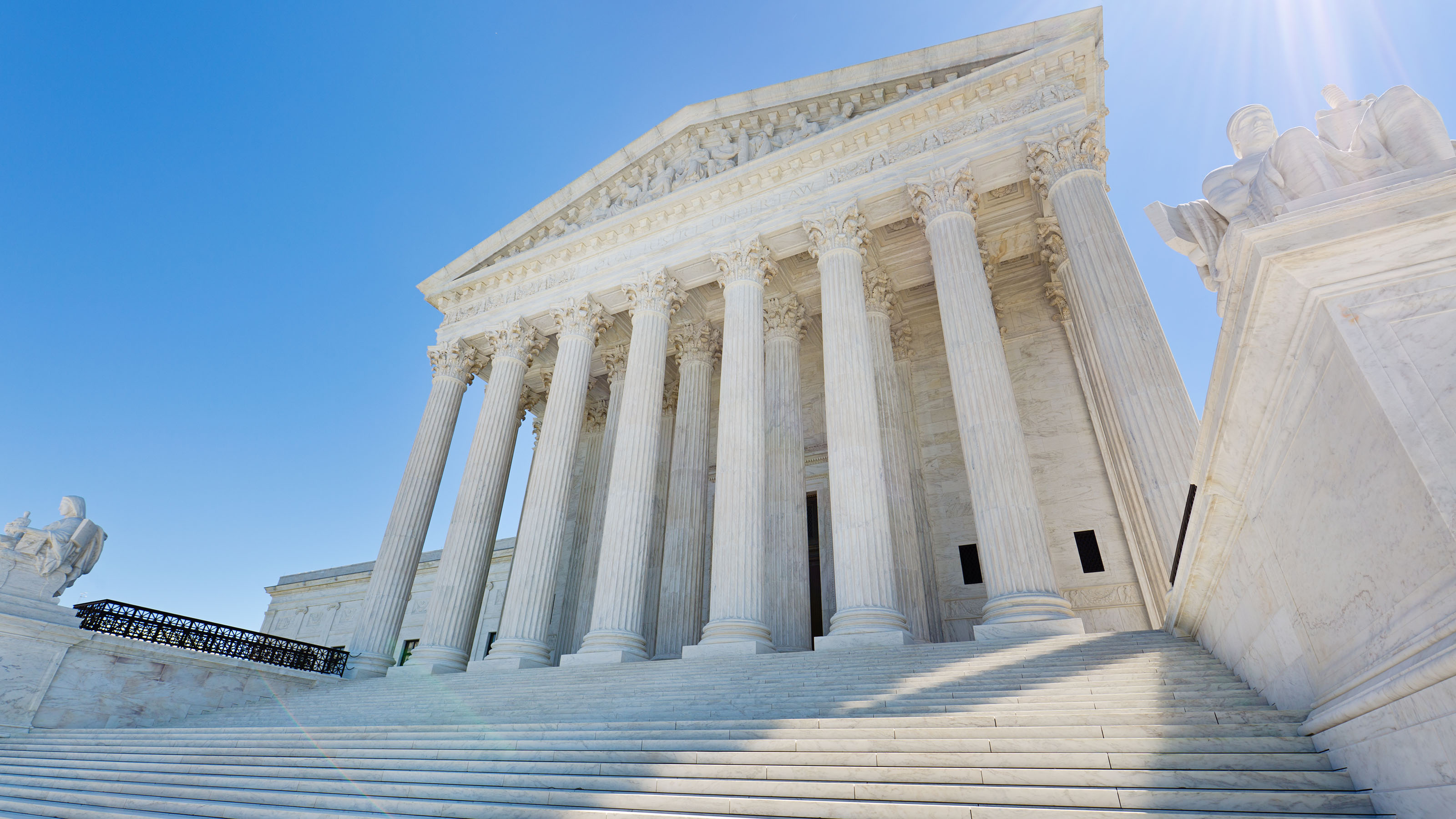3 Big Obamacare Changes That Employers Want – and One They’ll Actually Get
After looking at the downside risks, most companies will continue to offer their workers coverage.

Profit and prosper with the best of Kiplinger's advice on investing, taxes, retirement, personal finance and much more. Delivered daily. Enter your email in the box and click Sign Me Up.
You are now subscribed
Your newsletter sign-up was successful
Want to add more newsletters?
The fight to repeal the Affordable Care Act—Obamacare—is over.
Tensions remain, and the rhetorical battle is still being waged, but Republicans lost the war to kill the controversial health care law, and most of them accept that as political reality. Instead, the focus will shift to making changes in the law, some of them substantive, over the next few years.
Businesses want major alterations, but their top three goals won’t be realized once Congress starts tinkering with the measure. Topping their wish list is redefining who is a full-time employee. The law’s definition is anyone who works at least 30 hours a week, not the traditional 40. Next is doubling the small business exemption so that firms with fewer than 100 full-time-equivalent workers would not be required to offer health insurance.
From just $107.88 $24.99 for Kiplinger Personal Finance
Become a smarter, better informed investor. Subscribe from just $107.88 $24.99, plus get up to 4 Special Issues

Sign up for Kiplinger’s Free Newsletters
Profit and prosper with the best of expert advice on investing, taxes, retirement, personal finance and more - straight to your e-mail.
Profit and prosper with the best of expert advice - straight to your e-mail.
For now, the administration will dash employers’ third hope: a bare-bones “copper” plan that would have lower premiums than the bronze plan, which now provides the lowest level of acceptable coverage. That could come back into play down the road if the cost of other plans forces a large number of people to drop coverage.
One other business priority is within reach, though: Delaying the hefty excise tax on high-cost insurance plans. Firms don’t want to pay the 40% levy, set to start in 2018. And labor unions don’t like it because many plans that are part of collective bargaining contracts will be affected by the limits. So don’t be surprised if a strange-bedfellows coalition of bosses and unions forces a delay of a year or two.
But chances of further delays in key Obamacare deadlines are practically zero.
Despite widespread concerns and threats, relatively few firms that offer insurance coverage for their workers will stop during the next five years, according to a recent survey by Mercer, a human resources consulting firm. Most companies see offering insurance as a needed perk to attract and keep top workers. And even if the concept sounds appealing to some executives, in most cases the penalty for not providing coverage would be greater than the price of insurance, especially after factoring in the tax deduction that firms would lose. Also, workers would be taxed on any money companies gave them to purchase their own coverage.
The number of people buying health insurance will triple by 2016, from about 8 million now, as the health exchange websites are upgraded and word of easier enrollment spreads. Both federal and state exchanges will focus on making it easier for shoppers to compare plans. Costlier penalties for not having insurance will also coax more to sign up. The penalty is $325 next year for an individual or nearly 2% of adjusted gross income, whichever is higher; it reaches $695 or about 2% of AGI in 2016, and goes up from there with the annual cost of living.
Insurance premiums will increase, too, mostly by 5% to 10%. Few insurers will choose to boost rates by more than 10% because that would trigger a formal rate review.
Meanwhile, states will stop fighting Uncle Sam over Medicaid expansion. Just 25 states and the District of Columbia are on board now. In time, though, all are likely to participate. The reasons: big federal subsidies -- 100% now, dipping to 95% in 2017 and 90% in 2020 -- plus pressure from care providers, employers large and small, and interest groups.
The pattern looks remarkably like what happened after Congress and President Johnson created the Medicaid program in 1965 to provide health care for those with low incomes. By 1967, 26 states were participating. By 1972, all but two states were part of the program.
Profit and prosper with the best of Kiplinger's advice on investing, taxes, retirement, personal finance and much more. Delivered daily. Enter your email in the box and click Sign Me Up.

-
 Americans, Even With Higher Incomes, Are Feeling the Squeeze
Americans, Even With Higher Incomes, Are Feeling the SqueezeA 50-year mortgage probably isn’t the answer, but there are other ways to alleviate the continuing sting of high prices
-
 Hiding the Truth From Your Financial Adviser Can Cost You
Hiding the Truth From Your Financial Adviser Can Cost YouHiding assets or debt from a financial adviser damages the relationship as well as your finances. If you're not being fully transparent, it's time to ask why.
-
 How to Manage a Disagreement With Your Financial Adviser
How to Manage a Disagreement With Your Financial AdviserKnowing how to deal with a disagreement can improve both your finances and your relationship with your planner.
-
 Is a New $25,000 Health Care Tax Deduction Coming in 2026?
Is a New $25,000 Health Care Tax Deduction Coming in 2026?Tax Policy A proposal from GOP Sen. Josh Hawley adds to the chatter about health care affordability.
-
 Money for Your Kids? Three Ways Trump's ‘Big Beautiful Bill’ Impacts Your Child's Finances
Money for Your Kids? Three Ways Trump's ‘Big Beautiful Bill’ Impacts Your Child's FinancesTax Tips The Trump tax bill could help your child with future education and homebuying costs. Here’s how.
-
 Key 2025 Tax Changes for Parents in Trump's Megabill
Key 2025 Tax Changes for Parents in Trump's MegabillTax Changes Are you a parent? The so-called ‘One Big Beautiful Bill’ (OBBB) impacts several key tax incentives that can affect your family this year and beyond.
-
 Will EVs Drive the Vote in Election 2024 Swing States?
Will EVs Drive the Vote in Election 2024 Swing States?Tax Credits Electric vehicle tax credits have somehow become controversial. So car buyer attitudes in swing states might make a difference.
-
 How Four Recent Supreme Court Rulings Impact Your Money
How Four Recent Supreme Court Rulings Impact Your MoneySupreme Court Some U.S. Supreme Court decisions could affect your finances. Here’s what you need to know.
-
 Are Student Loans Being Forgiven or Not?
Are Student Loans Being Forgiven or Not?Student Loans The House and Senate voted to repeal President Biden’s student loan forgiveness plan, but does it even matter?
-
 Etsy, eBay, PayPal Want IRS 1099-K Relief for Online Sellers
Etsy, eBay, PayPal Want IRS 1099-K Relief for Online SellersIncome Tax Companies like eBay, Etsy, and PayPal want Congress to raise the $600 reporting threshold for IRS Form 1099-K to give relief to millions of sellers who use their sites.
-
 Student Loan Forgiveness Blocked For Now Due to Court Rulings
Student Loan Forgiveness Blocked For Now Due to Court RulingsBiden's student loan debt forgiveness program is on hold until the U.S. Supreme Court weighs in.